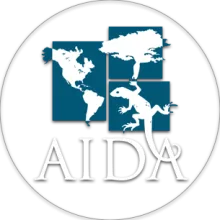The link between protection of the environment and human rights isn’t always immediately obvious. In fact, international law didn’t begin to establish the human right to a healthy environment until the 1990s.
But these are some of the things that can happen when the natural environment is harmed: We can lose our source of food. Our health can suffer. We may lose access to clean water. Our livelihoods can be destroyed if the land we farm or the sea we fish no longer supports a harvest. If a dam floods a village, people lose their homes. In some cases, these losses lead to the loss of a way of life—a culture.
International law is clear: the right to food, water, work, home, personal safety, and culture are all protected human rights.
That’s why AIDA uses international law to protect the human right to a healthy environment.
The relationship between human rights and the environment is gaining wider understanding in the national and international environmental and legal communities. Indeed, American University’s Washington College of Law, in Washington D.C., invited AIDA Co-Executive Director Astrid Puentes Riaño to share her expertise on the subject in June.
She gave a weeklong seminar on human rights and the environment in Latin America, available for students attending the summer program. Astrid also spoke on a panel, organized by the Academy of Human Rights of American University and AIDA, about how the two are linked in the specific case of the Belo Monte Dam.
Belo Monte is a large hydropower dam under construction in Brazil. The dam will destroy rainforest, kill off plant and animal species, and increase the emission of greenhouse gases, worsening climate change. The human impact is dire. More than 20,000 people will be displaced (independent estimates double this number). Already communities are being stripped of their villages, their cultures, and the cemeteries of their ancestors to make way for the world’s third-largest hydropower dam. Many river dwellers have moved to cities where they find themselves alone and struggling to find new trades.
“Our work is a constant David and Goliath battle. Sharing experiences with expert colleagues from the environment and human rights departments at one of the most prominent universities in the US was an honor” said Astrid Puentes Riaño, AIDA’s co-executive director. “It gives us hope that academia is recognizing this link, and is willing to study it. We look forward to continuing this kind of exchange, and to helping train more young lawyers about these issues.”
AIDA Staff

Founded in 1998, AIDA is a nonprofit environmental law organization that works across international borders to defend threatened ecosystems and the human communities that depend on them.
